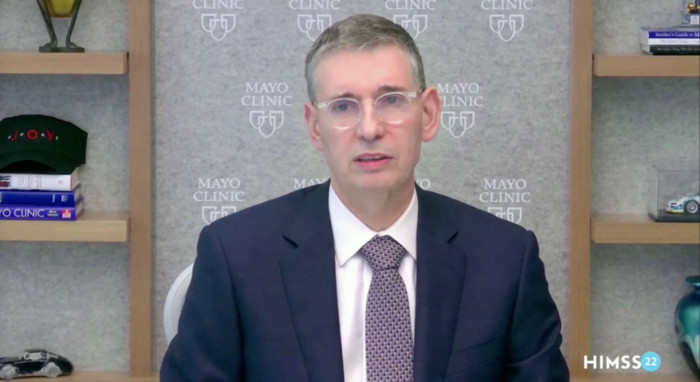Building a Strong Foundation for Digital Transformation in Healthcare
“Together with its partners, Mayo Clinic is leading the transformation of healthcare from a traditional pipeline model to a platform model that uses multimodal data, AI algorithms and a specific healthcare privacy-protecting architecture built to discover, validate and deliver new cures and better care to more people,” Farrugia said.
Mayo Clinic and Google announced in 2019 a 10-year strategic partnership, relying on Google Cloud for the organization’s digital transformation as it sought to make advancements in care. Then, with the launch of the data-driven Mayo Clinic Platform initiative, key partnerships and business ventures with nference, Lucem Health and Anumana followed.
“All of us recognize that healthcare is deeply personal and evokes strong emotions, but as a field, it is also strictly regulated, scientifically rigorous and conservative,” Farrugia said. “Therefore, any innovation requires significant data and testing to be accepted. It's a unique combination of emotions and science that make it a sector that is hard to change, yet we must change.”
Understanding “the emotions and the science,” as Farrugia put it, is key to healthcare’s transformation. “I strongly believe that includes moving healthcare from a pipeline to platform model to make it more responsive, accessible and innovative for our patients.”
MORE FROM HIMSS22: Dr. Nirav Shah discusses continuous remote patient monitoring.
Patient Care at the Center of Healthcare
Farrugia also highlighted the importance of patient privacy, security and comfort.
“Having access to healthcare data is a privilege and a huge responsibility. As healthcare providers, we have a responsibility to push hard to give the best possible care, but also respect our patients’ trust and privacy,” he said. “Even as we pursue innovative care, we have also sought broad input and pushed to develop standards for safeguarding our patients’ sensitive data and information, even beyond HIPAA and safe harbors.”
Farrugia highlighted the federated learning approach in AI algorithm development and the commitment to de-identify valuable patient data. “We and our partners also must constantly adapt our privacy efforts as the field evolves. There clearly is no finish line,” he added.
But the focus on digital transformations doesn’t mean neglect in the physical space of care, Farrugia said. Physical hospitals and clinics must keep up with the pace of digital change.
“These physical spaces must also transform to function across the spectrum of care from digital to in-person and back to digital again,” Farrugia said. Mayo’s “Bold. Forward.” plan for next-generation physical healthcare spaces aims to achieve more flexible, technological, integrated, warmer, welcoming and comforting sites for patients to receive care.













